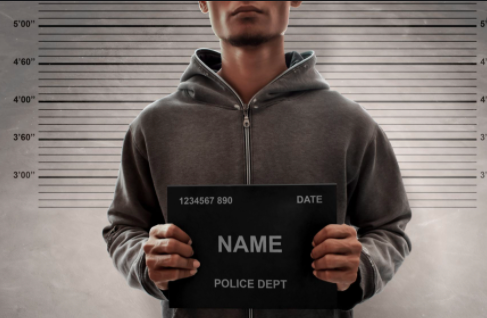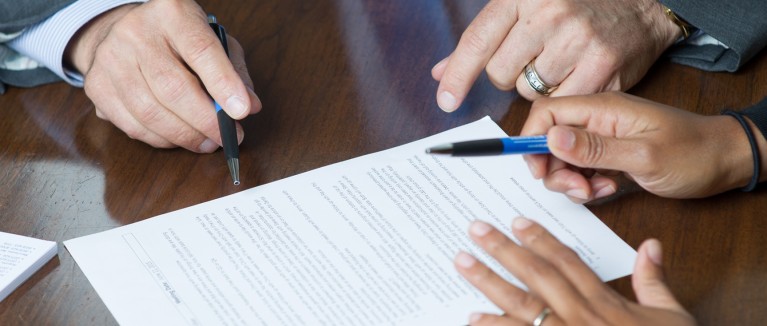
Interesting Facts About Mugshots That You Might Not Know
August 26, 2021For some people, searching the internet to find mugshots of friends, colleagues, and associates is a fascinating pastime. You never know what you will discover when you type in a person’s name on a search platform. From driving while under the influence to sex offenses and everything in between, a person that has been arrested for any of these crimes has a mugshot to prove it.
Although booking photos are hilarious at times, one thing to keep in mind is that just because somebody was arrested for something does not mean that they are guilty of a crime. One of the unfortunate aspects of booking photos is that once they are taken, they immediately become public information, regardless of the outcome of the case.
Table of Contents
The Mug
As for the exact origin of the term “mug,” it is unclear where it began. However, the term “mug” at one time was used to describe a person’s ugly or funny-looking face. Somewhere along the line, the police decided that all of the people that were arrested and had their pictures taken were ugly or funny-looking, so they referred to their photographs as mugshots.
Early Mugshots
Before the term “mugshot” came into existence, police officials would use daguerreotype photos to show people what wanted criminals looked like so they would know who to be on the lookout for. Ever since the first instance of photographic technology was introduced to the world, the system has been putting it to use in the war against crime.
The first known official mugshots originated in France in the late 1800s. It was here that the original format for the mugshot was developed. One photo is a close-up of the face and upper shoulders. Then the next photo is a side view of the person, also known as the profile. These two photos would be combined into one and have information about the accused person included in handwritten margins. The name, the date, and other information regarding the case would be in plain sight within the photograph.
Over the last couple of hundred years, the way mugshots are taken, manipulated, and stored has evolved in a big way. In most of the booking areas around the world, the photos are taken and edited digitally then automatically stored in a digital database.
Published Booking Photos
As soon as newspapers began printing photos on the pages of their newspapers, they started publishing mugshots of arrested people. Whenever an accused criminal goes into jail to begin the booking process, they do not get the chance to “freshen up” and look in the mirror to see how they look. Regardless of what is going on in their life and how they look, the police take snapshots of their faces and leave it at that.
Sometimes people get arrested in the heat of a crime that has been committed against them or in the midst of a crisis that left them disheveled and haggard. Other times the person in the picture is excessively drunk or under the influence of drugs. Sometimes they are even beat up and have facial injuries. Many of these photos look really bad and are less than appealing. However, newspapers, websites, and other agencies that have access to public data publish them for the whole world to see.
Although it may seem funny when you see a photo of your teacher, a neighbor, or anybody else that makes them look ridiculous, there is a chance that during the events that led to the arrest, some traumatic occurrences took place. There are some people that may deserve to have unflattering photos of them posted to the public. However, there are many more that don’t deserve that kind of treatment because they never committed the crime that they had been accused of.
Recently, a number of larger news companies have decided to stop publishing mugshots of people. They feel that publishing photos of individuals that have been booked into the county jail is not necessary unless it is a matter of public safety.
Mugshots and Public Records
Each state in the United States will have its own laws and regulations regarding the way that mugshots and arrest records are handled. However, there are federal laws in place that are there so that the interactions between the government and the American citizens are as transparent as possible. Court proceedings, real estate transactions, and even financial matters can all be deemed public records.
When a person is arrested for a crime, the agency that makes the arrest is responsible for collecting evidence and preparing the way for a trial that will eventually take place and put the accused person in front of a judge and jury.
Since the arrest and all of the steps that take place in the event of one are all parts of the larger whole that leads to court processes, every bit of information that comes into the picture regarding the case is subject to becoming public information – including the booking photo. The person’s name, date of birth, date of offense, charges, and other information are all collected and recorded as a means to assist the court process.
Since the court is run by the government, it is a transaction between a citizen and the government, so it is considered public record.
Finding Mugshots of People
There are literally thousands of websites online that sell access to a plethora of genuine mugshots and arrest records. All you have to do to find the mugshots of famous people such as Frank Sinatra and Elvis Presley is do a Google search. Within seconds you can find multiple pictures of both of them and many more celebrities. When it comes to finding mugshots of lesser-known people, such as your next-door neighbor or the person that works behind the counter at the gas station down the street, you may have to dig a little deeper, but you can find them…if you are willing to pay.
Although mugshots are considered public information, there are states with laws in place that protect the personal information of people. It may be harder to find mugshots of people from some states than others.
When you type a person’s name in a search engine such as Google or Bing, it is unlikely you will find that mugshot because the websites that house them block the pages that the information is on from the search engine bots. However, if the person you are searching for made the news with their arrest story, you could be in luck.
Generally, the companies that have access to public information will charge a one-time or a monthly fee so that you can have access to the data that they have available. Most of these companies have a database set up on their website that gets fed from other public data sites and even government websites that constantly get new information.
If you do not want to find mugshots of people online, the alternative is to discover the county or parish that they were arrested in then go through the process of obtaining the public records of that person through the official channels. In most cases, you will have to officially request the information, pay the fees to get the information, then wait for at least six weeks before you get the information.
Removing Mugshots from the Internet
One of the downfalls of the internet is that if you have booking photos online, they can be stretched across literally thousands of different websites. You can pay an agency to act on your behalf that will scour the internet and find all of the information about you that is available and ask for it to be removed. You can also seek out instances of your personal information that is online and ask each website to remove your information. Either way, it can be a long and daunting process to have your information and photos removed.
The best way to go about removing your online mugshots is to take the steps necessary to make it happen. Do an online search on yourself and see what is out there. For every website that you come upon that has your information, send them an email and ask them to remove it. Most websites will respect your wishes and remove the content. However, they are not obligated to do so.









